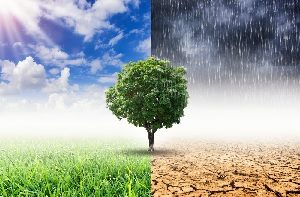 In the last few weeks, two important climate reports were released – the Fourth National Climate Assessment (NCA4) and the UN Emissions Gap Report 2018. Both studies highlight the risks of rising greenhouse gas emission (GHG) concentrations in the Earth’s atmosphere, and the potential consequences should these trends continue. The threats posed by a warming world are not just dangerous for the climate-dependent sectors of our economy (crops, livestock, and global fisheries), but bad for global security as well. The Trump Administration’s Pentagon calls climate change a ‘threat multiplier’ because it aggravates pre-existing societal stress factors. Instances of state collapse, refugee flows, and conflicts over basic resources, including food and water attributable to climate change, have already been studied. But battling climate change will not be easy – or cheap. Since the era of a steam engine, the global economy has been inextricably linked to fossil fuels – from the oil that powers the world’s vehicles to the coal and natural gas that illuminates our cities – which means that a transition to cleaner alternatives will need to be managed with care. Forbes
In the last few weeks, two important climate reports were released – the Fourth National Climate Assessment (NCA4) and the UN Emissions Gap Report 2018. Both studies highlight the risks of rising greenhouse gas emission (GHG) concentrations in the Earth’s atmosphere, and the potential consequences should these trends continue. The threats posed by a warming world are not just dangerous for the climate-dependent sectors of our economy (crops, livestock, and global fisheries), but bad for global security as well. The Trump Administration’s Pentagon calls climate change a ‘threat multiplier’ because it aggravates pre-existing societal stress factors. Instances of state collapse, refugee flows, and conflicts over basic resources, including food and water attributable to climate change, have already been studied. But battling climate change will not be easy – or cheap. Since the era of a steam engine, the global economy has been inextricably linked to fossil fuels – from the oil that powers the world’s vehicles to the coal and natural gas that illuminates our cities – which means that a transition to cleaner alternatives will need to be managed with care. Forbes
